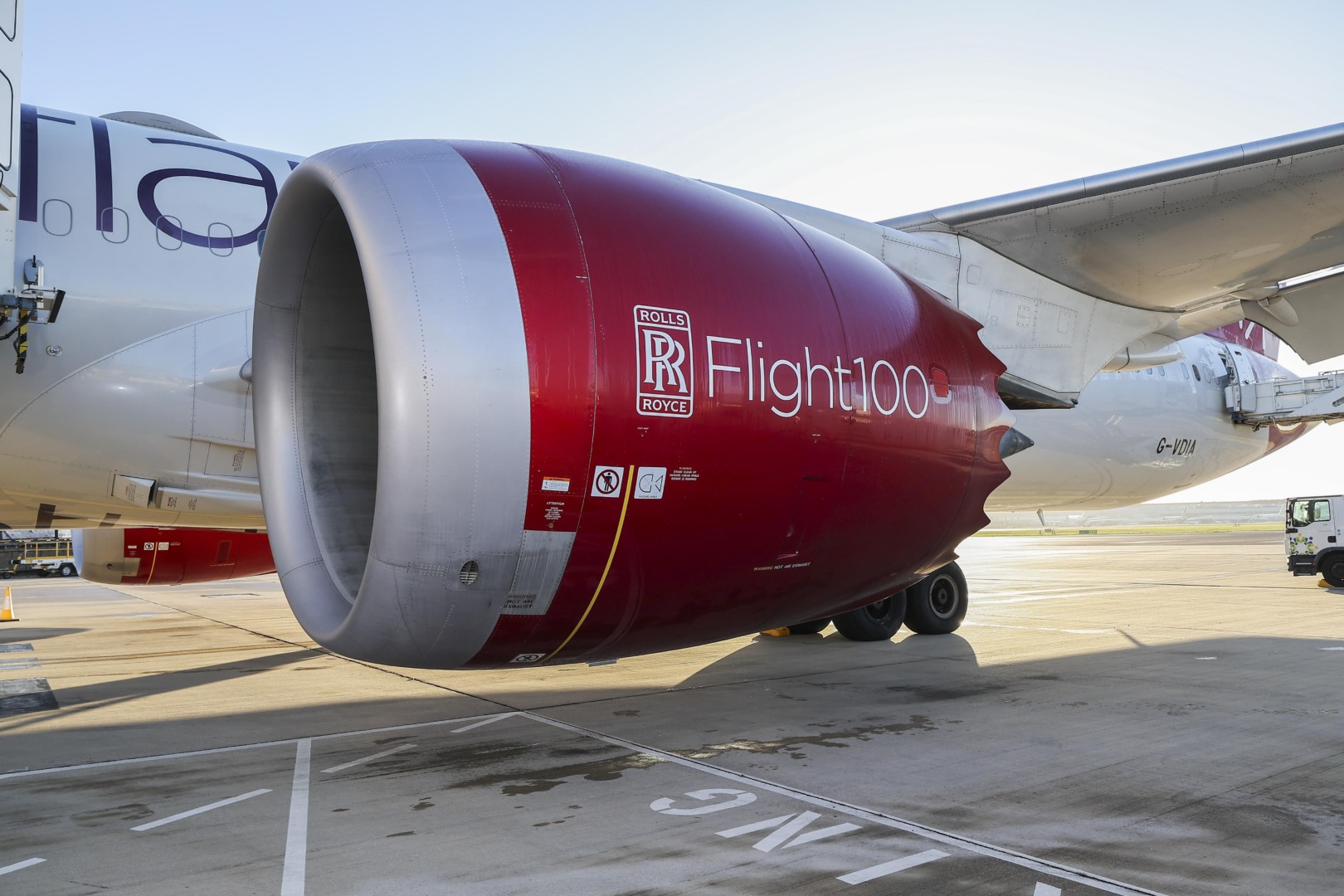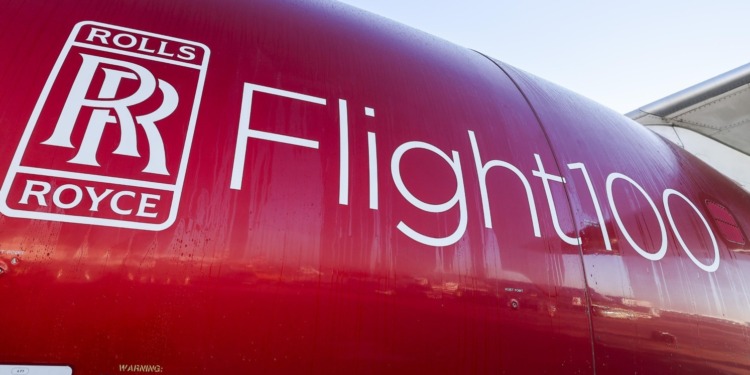On November 28, Virgin Atlantic’s “Flight100” completed the world’s first transatlantic commercial journey, from London Heathrow to New York JFK, running on 100% Sustainable Aviation Fuel (SAF).
The historic flight, operated on a Boeing 787 with Rolls-Royce Trent 1000 engines, “proves that Sustainable Aviation Fuel can be used as a safe, drop-in replacement for fossil-derived jet fuel and it’s the only viable solution for decarbonising long haul aviation,” said Shai Weiss, Chief Executive Officer at Virgin Atlantic.
View this post on Instagram
This milestone, Virgin explains, was the result of a year-long collaborative effort involving Boeing, Rolls-Royce, Imperial College London, University of Sheffield, ICF, and Rocky Mountain Institute, among other partners.
The Virgin Atlantic-led consortium worked in partnership with the UK Department for Transport to demonstrate that SAF can be a mid-term solution for achieving Net Zero 2050 in the aviation sector.
Mark Harper, the UK transport secretary, said that the 100% SAF-powered flight “shows how we can decarbonise transport both now and in the future, cutting lifecycle emissions by 70% and inspiring the next generation of solutions.”
Indeed, according to the International Air Transport Association (IATA), Sustainable Aviation Fuel can “reduce CO2 emissions by up to 80%.” Here the Sustainable Aviation Fuel is defined as a liquid fuel that “can be produced from a number of sources (feedstock) including waste oil and fats, green and municipal waste and non-food crops.”
“Whereas fossil fuels add to the overall level of CO2 by emitting carbon that had been previously locked away, SAF recycles the CO2 which has been absorbed by the biomass used in the feedstock during the course of its life,” the IATA explains.
As to performance, Sustainable Aviation Fuel performs similarly to conventional fuel, making it a practical solution for the industry. Unlike some of the other technologies that are still in development, Sustainable Aviation Fuel can be implemented immediately.
Related Articles: SAF – Sustainable Aviation Fuel Could Make Flying Greener Soon | DHL Signs Historic Deal to Secure 668 Million Liters of Sustainable Aviation Fuel | Boeing Launches New Tool to Help Scale Sustainable Aviation Fuel | Fit for 55: EU Approves Greener Aviation Fuels | Clean Skies Ahead? The Future of Global Shipping With Sustainable Aviation Fuel
However, only around 0.1% of the global jet fuel in 2023 use involves Sustainable Aviation Fuel, with current standards only allowing a 50% SAF blend in commercial jet engines.
Flight100 aims to both prove the capabilities of SAF and assess its impact on non-carbon emissions during flight, Virgin says. Consortium partners, including ICF, Rocky Mountain Institute (RMI), Imperial College London, and the University of Sheffield, will contribute to research on the effects of SAF on contrails and particulates.
The findings have the potential to enhance scientific understanding and contribute to the implementation of contrail forecasts in flight planning processes, benefitting the entire aviation industry.

As Virgin writes, “Flight100 proves that the challenge of scaling up production is one of policy and investment, and industry and government must move quickly to create a thriving UK SAF industry.”
This aligns with how the IATA sees the challenges and what it proposes as a solution: Policies and incentives to accelerate the deployment of Sustainable Aviation Fuel.
“As SAF is in the early stages of market development, mandates should only be used if they are part of a broader strategy to increase the production of SAF and complemented with incentive programs that facilitate innovation, scale-up and unit cost reduction,” the IATA writes.
Virgin CEO Shai Weiss also emphasized the importance of regulatory support and investment to scale up SAF production, stating:
“It’s taken radical collaboration to get here and we’re proud to have reached this important milestone, but we need to push further. There is simply not enough SAF and it’s clear that in order to reach production at scale, we need to see significantly more investment. This will only happen when regulatory certainty and price support mechanisms, backed by government, are in place. Flight100 proves that if you make it, we’ll fly it.”
Editor’s Note: The opinions expressed here by the authors are their own, not those of Impakter.com — In the Featured Photo: Virgin Atlantic’s first 100% SAF transatlantic commercial flight. Featured Photo Credit: Virgin Atlantic.










